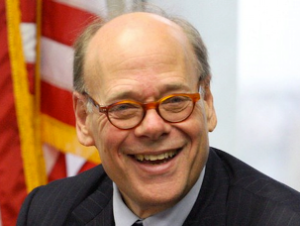[Full disclosure: I researched and wrote most of this report and was paid by DPA to do so.]
In a report released this week, the Drug Policy Alliance (DPA) and the Multidisciplinary Association for Psychedelic Studies (MAPS) reveal a decades-long pattern of the DEA ignoring scientific evidence and systematically obstructing medical research that could lead to the rescheduling of marijuana.
While the report found that the DEA tends to move with excruciating slowness when confronted with evidence that confounds its ideological predispositions, the agency is able and willing to move at lightning speed to criminalize more drugs or schedule them more restrictively.
The report, The DEA: Four Decades of Impeding and Rejecting Science, uses a number of case studies to unveil DEA practices to maintain the existing, scientifically unsupported drug scheduling system. They include:
Failing to act in a timely fashion. The DEA took 16 years to issue a final decision rejecting the first marijuana rescheduling petition, five years for the second, and nine years for the third. In two of the three cases, it took multiple lawsuits to force the agency to act.
Overruling DEA Administrative Law Judges. DEA Administrative Law Judges are government officials charged with evaluating the evidence on rescheduling and other matters before the DEA and making recommendations based on that evidence to the DEA Administrator. In the cases of the scheduling of marijuana and MDMA, the judges determined that that they should be placed in Schedule II instead of Schedule I, where they would be regulated by the Food and Drug Administration (FDA) as prescription medicines, but still retain criminal sanctions for non-medical uses. However, agency administrators overruled their Administrative Law Judges' recommendations, substituting their own judgments and ignoring scientific evidence. The current DEA head, Michelle Leonhart, also rejected a DEA Administrative Law Judge ruling that the DEA end its unique and unjustifiable monopoly on the supply of research-grade marijuana available for federally approved research.
Creating a regulatory Catch-22. The DEA has argued for decades that there is not sufficient evidence to support rescheduling marijuana or the medical use of marijuana. At the same time, it has -- along with the National Institute on Drug Abuse -- acted in a manner intended to systematically impede scientific research. Through the use of such tactics, the DEA has repeatedly and consistently demonstrated that it is more interested in maintaining existing drug laws than in making important drug control decisions based on scientific evidence.
The report makes two central recommendations: 1) that the responsibility for determining drug classifications and other health determinations should be completely removed from DEA and transferred to another agency, perhaps even a non-governmental entity such as the National Academy of Sciences, and 2) that the DEA should be ordered to end the federal government's unjustifiable monopoly on the supply of research-grade marijuana available for federally approved research. No other drug is available from only a single governmental source for research purposes.

"The DEA and Ms. [Michele] Leonhart have constantly been opposing any science that would change her mindset and opinion, which was apparently created around 1937," said Rep. Steven Cohen (D-TN), referencing the year federal marijuana prohibition began. "She is totally against marijuana, she will not admit that it is not as harmful as heroin or cocaine, and she is on a war on drugs."
Cohen was the author of another successful amendment that spanked the DEA. His successful amendment redirected $5 million in DEA funding to instead be used to help reduce a back log of rape kits that need testing. He said he was happy to be part of the congressional effort to restrict the agency.
"I was thrilled to be part of that coalition," Cohen said. "Those amendments to the appropriations bill were a great victory. We've been voting on this since 2007, and we always had about 165 Democrats on board, and a few more this time. Rep. Dana Rohrabacher (R-CA) did a great job getting Republicans on board; he got some of the younger, more libertarian members and members who know people marijuana has helped."
"The DEA has opposed efforts to reform federal scheduling policy to acknowledge that marijuana has medical purposes," said Dr. Carl Hart, a Columbia University neuroscientist. "As someone who has studied marijuana, this concerns me. That the DEA has not rescheduled marijuana seems to go against all the scientific evidence and against a society that uses empirical evidence."
MAPS executive director Rick Doblin said his organization, acting as a non-profit pharmaceutical company, had been trying for 22 years to develop Schedule I drugs like marijuana into FDA-approved medications, but that the DEA and other federal agencies had made that impossible.

One study -- of marijuana's efficacy in treating PTSD -- has been approved, Doblin said, but even there, the process has been painfully slow.
"We started trying to get that approved four years ago," he said. "We finally got approval from NIDA in March of this year, but they say they won't have the marijuana we need until January 2015."
For Doblin, it's all about ending NIDA's monopoly on marijuana for research purposes.
"DEA is protecting the NIDA monopoly, which should be ended," he said. "That's the action item we should be doing right now."
The DEA has been politically bulletproof since it was created by the Nixon White House in 1973. But that is changing, DPA national affairs director Bill Piper argued.
"When you look at Congress, with so many members driven by frustration that the DEA is blocking research and preventing medical marijuana from moving forward, that's a big reason the House voted for those amendments," he said. "The DEA has said that marijuana is not approved by the FDA, but Congress has figured out that DEA is blocking the necessary trials from moving forward. The more the DEA obstructs the research, the more support there is for changing federal law and cutting the DEA's authority. The days when the DEA can quietly block this stuff are over; they will pay a price if they stand in the way of reform."
This work by StoptheDrugWar.org is licensed under Creative Commons Attribution-ShareAlike 4.0 International
Comments
Them v US
“Whenever any form of government becomes destructive of these ends [life, liberty, and the pursuit of happiness] it is the right of the people to alter or abolish it, and to institute new government...”
? Thomas Jefferson
Liberty
of course they do. i mean, if
of course they do. i mean, if they supported science and research and logic they would all have to look for new jobs! lol.
it's like the police in that if there was no crime, the police would have no job. we could eliminate all violence and “crime” from society if we wanted to within a generation or two but then those who work in the police forces, the courts, the prisons, the educational institutions that train people in these industries, etc, would all have to look for a new line of work. it's just another example of how personal best interests and society's best interests conflict.
Beaurons
It's all about preserving the beauracracy and protecting DEA jobs.
End the DEA
We don't need no stinking DEA. Nor their little lap dog NIDA.
I hope they continue to stupidly obstruct research and science so that their self-serving schemes become so painfully obvious for all to plainly see, that it leads to demands of their permanent demise.
Dare to dream....
just say no to dogmas!
the d.e.a. and the war on 'drugs' it represents is a modern day version of medieval inquisitors and inquisitions. dogmatic to the core, greedy, corrupt, sick, stupid, crazy, cruel, evil. just say no to dogmas!
Add new comment